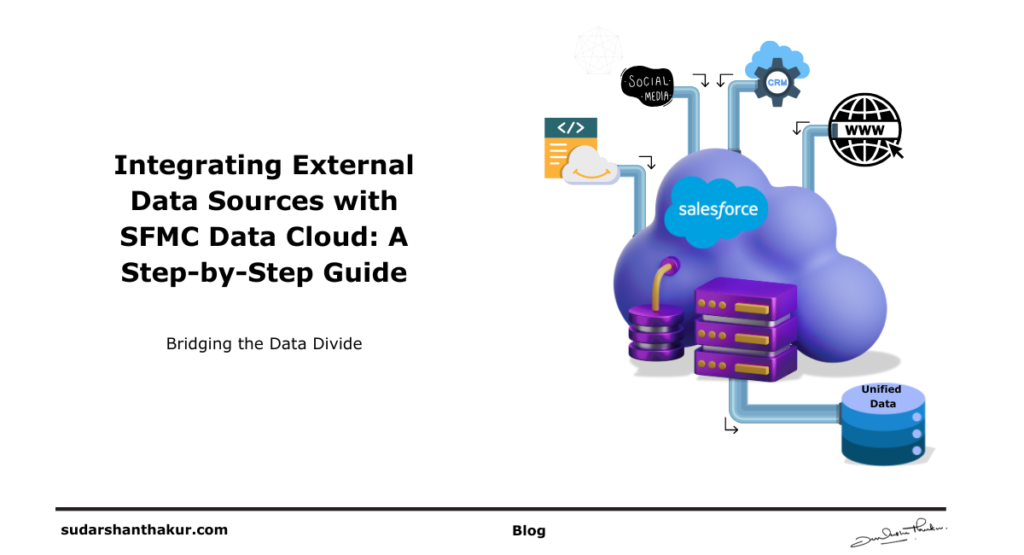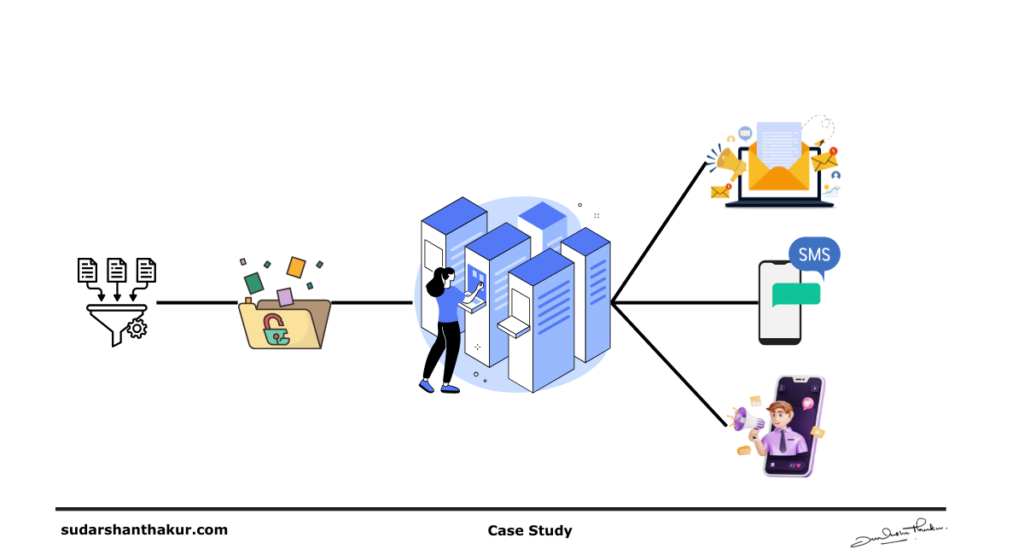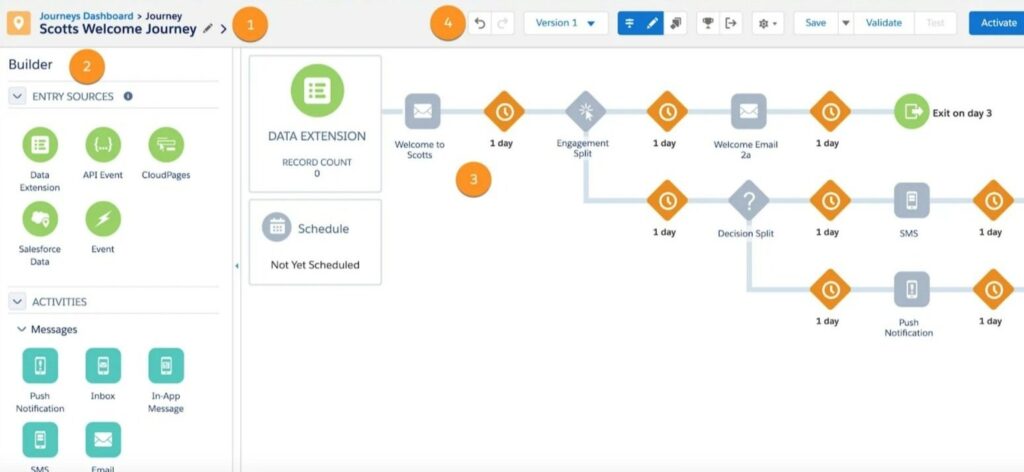Integrating External Data Sources with SFMC Data Cloud: A Step-by-Step Guide

Introduction: Bridging the Data Divide
Imagine a global e-commerce company, ShopTrendz, struggling to align its customer engagement strategies due to data scattered across CRM platforms, social media analytics, and point-of-sale (POS) systems. Each siloed system held valuable insights, but without integration, the company couldn’t deliver consistent, personalized experiences.
To address this, ShopTrendz turned to Salesforce Marketing Cloud (SFMC) Data Cloud to integrate its external data sources into one unified platform. This blog provides a step-by-step guide on how businesses can achieve the same, enabling seamless customer insights and exceptional engagement strategies.
Why Integrate External Data Sources with SFMC Data Cloud?
Integrating external data sources into SFMC Data Cloud offers:
Actionable Analytics: Real-time data-driven decision-making.
Unified Customer Profiles: Centralized data from all touchpoints.
Enhanced Personalization: Tailored campaigns based on comprehensive insights.
Step 1: Assess Your Data Sources
Actionable Steps:
- Inventory Your Data Sources: Identify external systems like CRMs (e.g., HubSpot, Zoho), ERP systems, or analytics platforms.
- Evaluate Data Quality: Ensure data is accurate, complete, and up-to-date.
- Map Data Fields: Align fields (e.g., customer ID, email, purchase history) across platforms.
Real-Life Scenario: ShopTrendz discovered redundant and outdated customer records in its legacy CRM. A data audit helped prioritize high-quality sources for integration.
Step 2: Establish Integration Framework
Actionable Steps:
- Choose the Right Tools: Use middleware platforms like MuleSoft or APIs for seamless integration.
- Set Up Connectors: Leverage pre-built connectors in Salesforce for platforms like Shopify or Google Analytics.
- Define Data Flows: Decide how data should move (e.g., real-time syncing or batch uploads).
Pro Tip: Start with one source to test the framework before scaling to multiple integrations.

Step 3: Configure Salesforce Data Cloud
Actionable Steps:
- Create a Unified Data Model: Use Data Cloud’s tools to define object relationships (e.g., linking customer profiles to transaction histories).
- Set Up Data Streams: Connect external systems to Data Cloud for continuous data syncing.
- Implement Identity Resolution: Merge duplicate profiles for a single source of truth.
Real-Life Scenario: ShopTrendz used Salesforce’s Identity Resolution feature to merge fragmented records, reducing duplication by 35%.

Step 4: Build and Test Integration Workflows
Actionable Steps:
- Design Workflows in Automation Studio: Automate data ingestion and processing tasks.
- Conduct Integration Testing: Validate data accuracy and field mapping by running test scenarios.
- Monitor Data Quality: Use Data Cloud dashboards to track errors or inconsistencies.
Pro Tip: Set up email notifications for failed workflows to address issues proactively.
Step 5: Leverage Data for Campaigns
Actionable Steps:
- Create Segments: Use data attributes to create granular audience segments.
- Build Personalized Journeys: Use SFMC’s Journey Builder to create multi-channel campaigns.
- Optimize with Analytics: Track campaign performance and adjust strategies using AI-driven insights.
Real-Life Scenario: With unified data, ShopTrendz created personalized cart abandonment campaigns, increasing email click-through rates by 50%.
Challenges and Solutions
Common Challenges:
- Data Silos Persist: Address by conducting periodic audits.
- Integration Complexity: Use robust middleware solutions like MuleSoft.
- Real-Time Sync Delays: Optimize APIs for faster performance.

Conclusion: The Path to Seamless Integration
Integrating external data sources with SFMC Data Cloud transforms customer engagement strategies by enabling:
- Real-time insights.
- Precise personalization.
- Consistent, multi-channel campaigns.
By following these steps, businesses can create a robust data-driven marketing strategy, driving better ROI and stronger customer relationships.
How Can I Help?
As a certified Salesforce Marketing Cloud and Data Cloud expert, I bring years of hands-on experience in integrating complex data ecosystems for businesses across industries. I can help your company:
- Conduct a thorough data audit to identify actionable insights.
- Design and implement a scalable integration framework.
- Build automated workflows that drive efficiency and accuracy.
- Leverage unified data to create personalized campaigns that convert.
Together, we can streamline your customer engagement strategies and achieve measurable success. Let’s discuss how we can make this a reality for your business.
Let’s discuss how we can achieve your business goals together.
Want more insights like this? Subscribe to our newsletter and receive actionable marketing strategies, case studies, and expert tips directly in your inbox. Let’s scale your business together, one strategy at a time!
